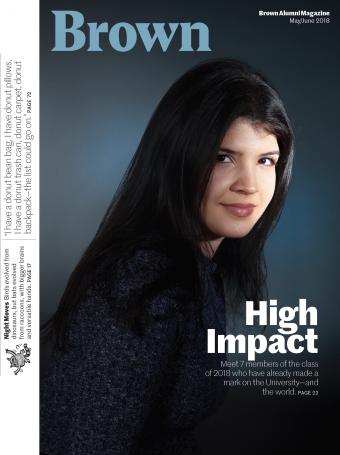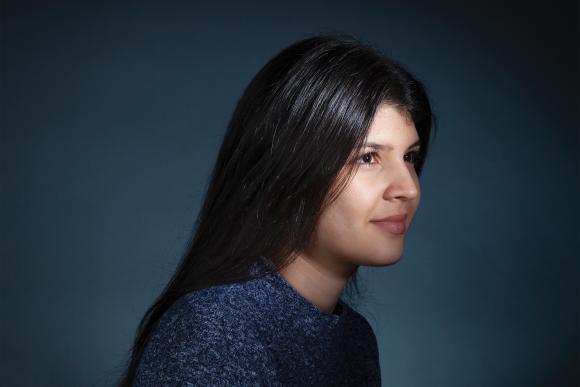PROVIDENCE, R.I. [Brown University] — "Mursal is the real deal,” says Christopher T. Born, director of the Weiss Center for Orthopaedic Trauma Research at Rhode Island Hospital. “She has the ethos and capacity to make a meaningful impact on society.”
Gardezi, along with principal investigators Born and Assistant Professor of Orthopedics Dioscaris Garcia ’12 PhD, has been devising a speedier test for surgeons to test for bacterial infections. Current tests take up to two weeks and are, as Born puts it, “fraught with inaccuracies.” Gardezi, he says, has gotten a test down to 35 minutes—potentially revolutionizing the way these infections are treated. Her work has already been presented at national conferences.
“I was very, very fortunate to get into Brown,” the soft-spoken Gardezi says. Born in India to Afghani Muslim parents who had fled the Taliban, Gardezi notes that as refugees the family was “sometimes homeless, not always having food.” They made their way to California, where Gardezi entered public kindergarten, despite speaking only Hindi and Farsi. Her dad, a former army general from a wealthy family, became a cab driver. “We live low-income and we’re supported by the government to this day,” Gardezi says.

Growing up as a Muslim immigrant, Gardezi was once threatened by a group of angry boys on the way home from elementary school. Her mother stopped wearing a hijab, to avoid being a target. In high school Gardezi earned a 4.6 GPA and won awards for community service leadership. She knew she wanted to study biology and become a doctor-researcher. Gardezi applied to Brown and was offered a full Sidney E. Frank scholarship and a spot in the New Scientist Catalyst pre-orientation program.
Gardezi credits her success to the extra help Brown offers low-income students from historically underrepresented groups. “Without Catalyst,” she says, “I don’t know if I would have passed. It’s that drastic.” She also met friends from similar backgrounds. “There are people like me who need to be here [at Brown], who offer a different perspective,” she says. “If there’s no one to have that voice in research”—such as studies of differences in how breast cancer affects African American women—“then that research isn’t going to be done.”
Gardezi, who spends hours peering into a specialized microscope, throws around such words as “osteomyelitis” and “polymerase chain reaction,” but she’s still able to describe “biofilm” in layman’s terms: “You have this big clump of bacteria—they start talking to each other and start behaving differently. Antibiotics can’t penetrate the gooey weird stuff that they secrete.”
Outside the lab, Gardezi does community service—mentoring low-income high school students, cuddling drug-addicted babies at Women’s and Infants Hospital, volunteering at the Rhode Island Free Clinic. She explains she’s gotten a lot of help and, as she did in high school, wants to “pay it back and pay it forward.”
— Louise Sloan, Interim Editor & Publisher


